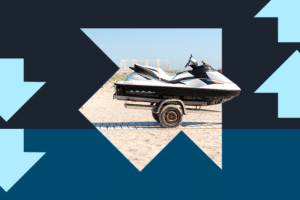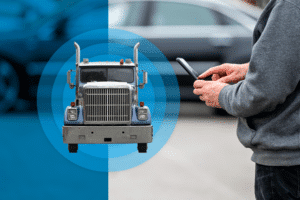In one of my earlier posts, I mentioned that getting into trucking – just like with any new business – is going to cost you some money. Obtaining the right insurance is one of those hard costs you need to anticipate. Operating without commercial truck insurance is not an option. You must provide the appropriate commercial insurance to operate legally in the U.S. and Canada.
When doing any sort of interstate or intrastate commercial hauling, the law requires a minimum $1,000,000 in general liability insurance. About two years ago the federal requirement for cargo insurance was dropped, but that does not mean you don’t need it. Every shipper or broker you haul for will require you to have cargo insurance to cover their load. I have $150,000 in cargo insurance coverage and that will generally cover most freight I carry. When that is not enough coverage, I purchase spot insurance to fill the gap between my coverage and that required by the shipper.
Based on what I experienced going through the process, here are some answers to questions I had along the way. Hope this is helpful:
When do I get my insurance?
Once you’ve completed all the necessary forms and before you are granted your Operating Authority privileges, you will need to have your commercial insurance in place. There will be a processing/waiting period. You won’t be issued your MC number or be able to legally operate without it. So it’s not something you can wait on or let go for a while. It will be checked at scales, and you will need it for setting up carrier packages, especially if you’re an independent owner-operator just breaking into the game.
Where can people/customers/brokers see if I have the proper insurance?
Once issued, your levels of insurance are tied to your MC number on the FMCSA web site. Each carrier has a company snap shot on the FMCSA site – and this information is public knowledge at any time. This will include any claims, violations, out of service notifications – anything that transpires during your operation over time. Regardless of what you are hauling – it’s based on the MC number, not on the freight.
How is it monitored after I get it?
There are several carrier authority and compliance monitoring services in the market. These are tied to the FMCSA data base, so if your insurance lapses or there’s a claim, it gets reported and it will appear in connection with your MC number. Good examples are SaferWatch and CarrierWatch.
So, what are some factors that will impact your insurance rates?
Cargo: While your insurance is tied to your MC number, the levels of insurance you require will be based on what you are hauling. For me, if you look at my MC number, you’ll see the various commodities where I’m covered. This includes heavy haul and vehicles, ag and farm equipment, lumber, steel, etc. – and these all impact my rates. In other words, hauling watermelons will have a more favorable rate than if you haul something more risky, like gasoline or another hazardous material.
CDL Duration: If you’ve just got your CDL, expect that your rates will be much higher than that of a driver who’s had his or her CDL for 30 years. And if you have a couple trucks, it’s smart to have an experienced driver with a CDL to keep your rates down.
Deductible: Just like with health or car insurance, the higher deductible the lower the monthly premium. This is different for each person, so there’s no hard and fast rule on how to handle it, but the same principal applies and can have a material effect on your monthly expenses.
Equipment Value: The type and total value of your equipment, including your tractor and trailer(s), will definitely impact what you pay each month. Also the particular type of hauling you do will impact your rates. It’s the same principle behind car insurance – getting coverage on a 2000 Honda Accord will run a lot less than a 2013 BMW 5 Series. Insurance for off-road vehicles is generally more than on-road vehicles.
Who should I talk to about getting insurance?
There are commercial insurance agents who specialize in trucking and can help you get set up. My advice is to use them vs. trying to research it all yourself. These agents know how the trucking insurance world works. One such company is Transinsurers. Progressive is another company for short haul and intrastate. You can also get spot cargo insurance at Freight Guard.
Marc, what are your tips for saving me money in the process?
My biggest tip is to shop around. Don’t just go with the first company that offers you a rate. See what else is out there and work with the agent to make sure you’re not overpaying for stuff you don’t need. And once you get a policy, be diligent about it to make sure you’re getting the very best rate.
I also came across 6 cost-saving suggestions from Overdrive Magazine. Click into the article for more details on each item in the list:
Mind the deductible.
Keep credit history clean.
Include aftermarket items in stated value.
Account for safety.
Compare rates.
Update business information.
In the next post we’re going to talk about the next step in the process: Calculating Cost Per Mile.
uShip is reinventing shipping and logistics through tools, trust and transparency. Through uShip’s transport marketplace, it’s now faster, easier and cheaper for consumers and businesses to connect with thousands of customer-reviewed transporters that often have empty truck space offered at a discounted rate.
Join uShip to find shipments for free, connecting you directly with shippers.


